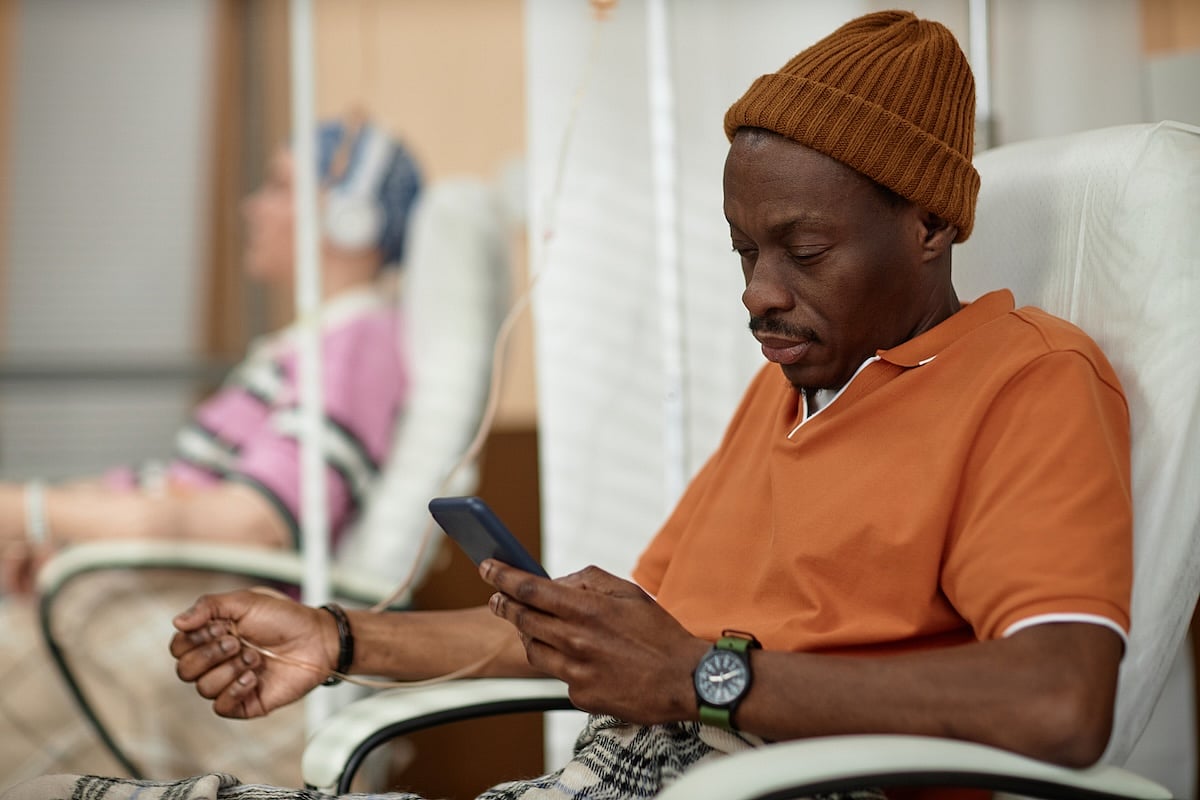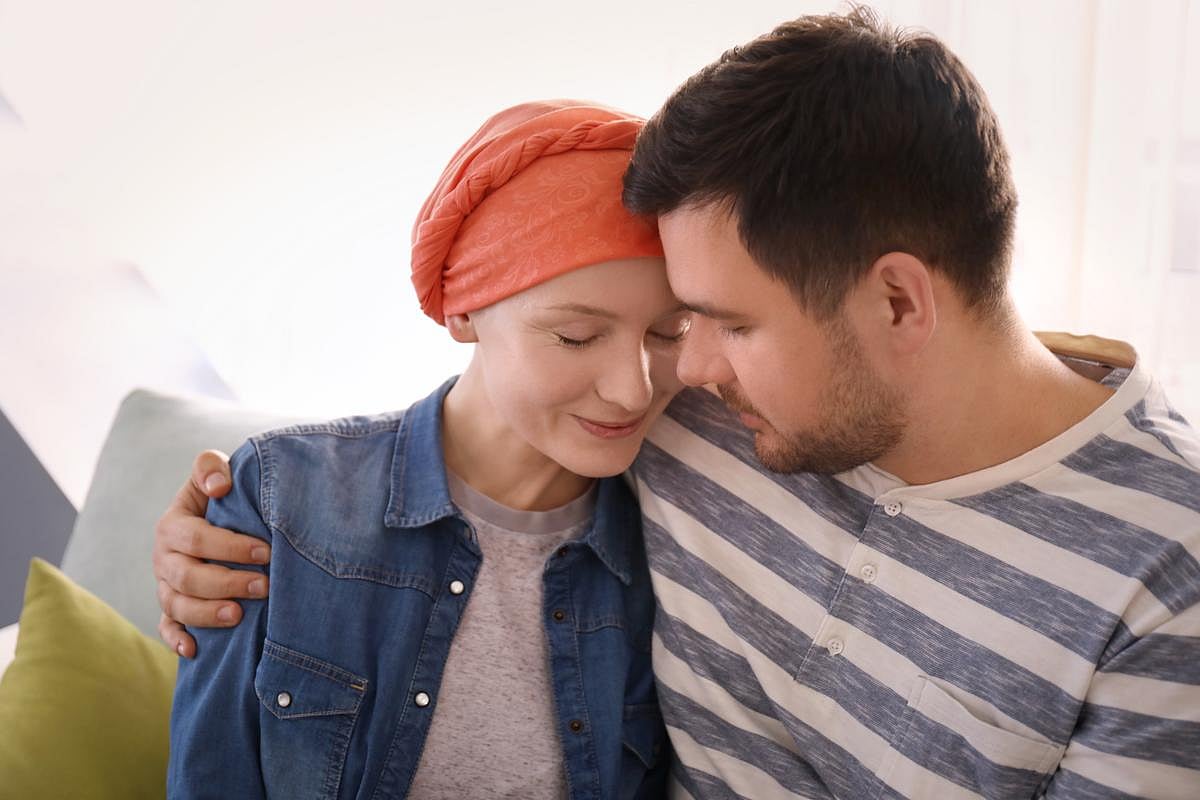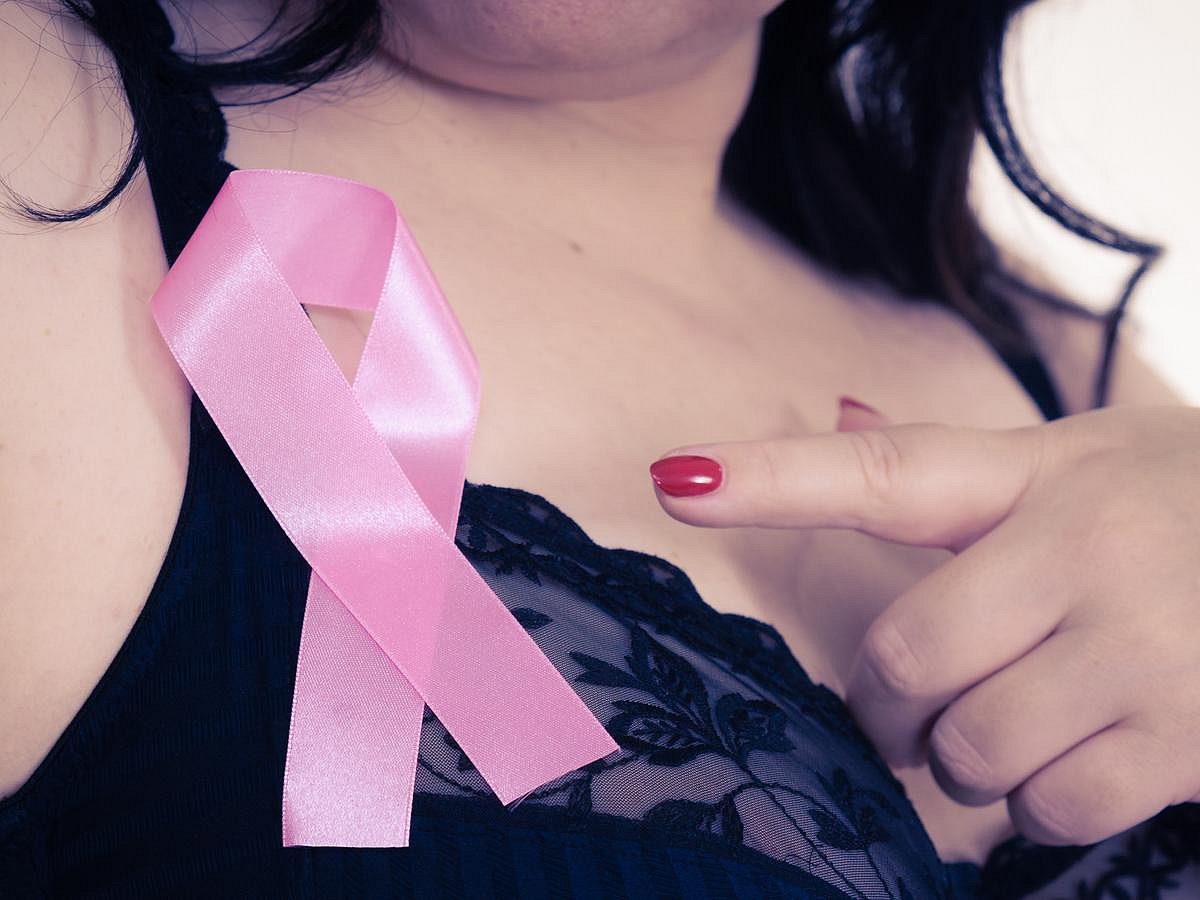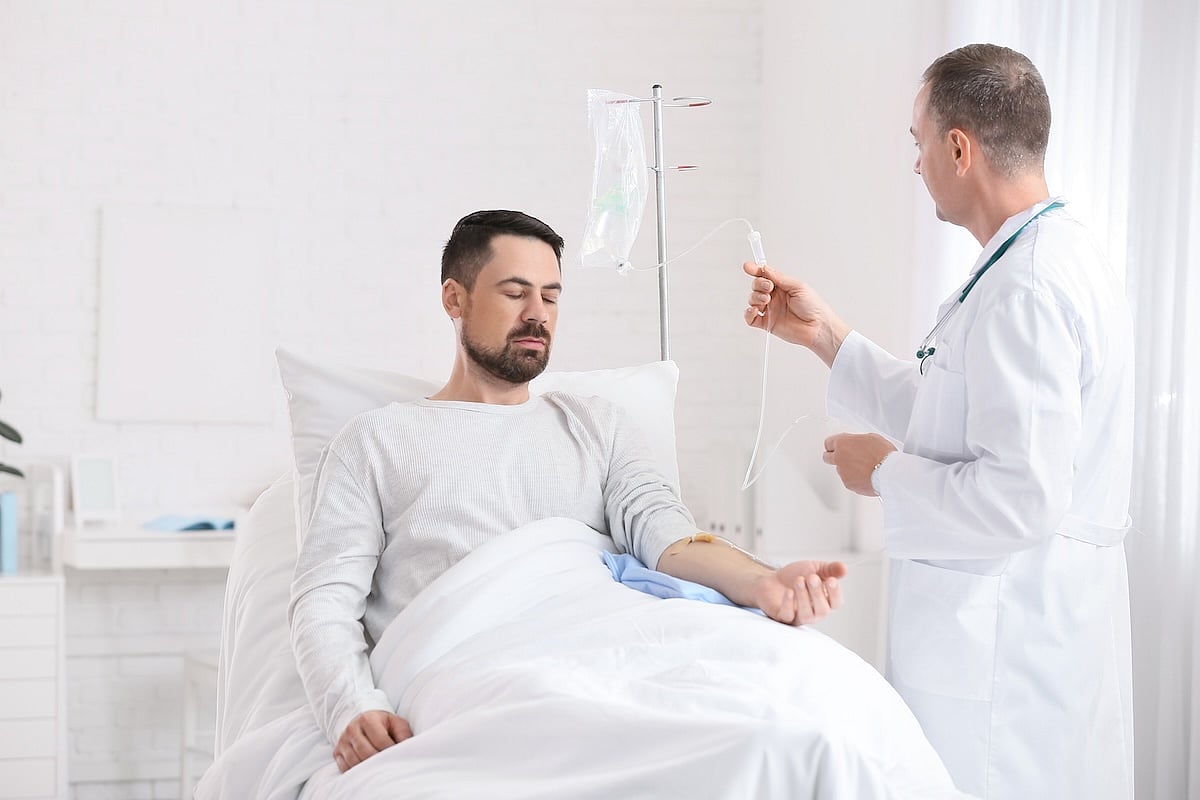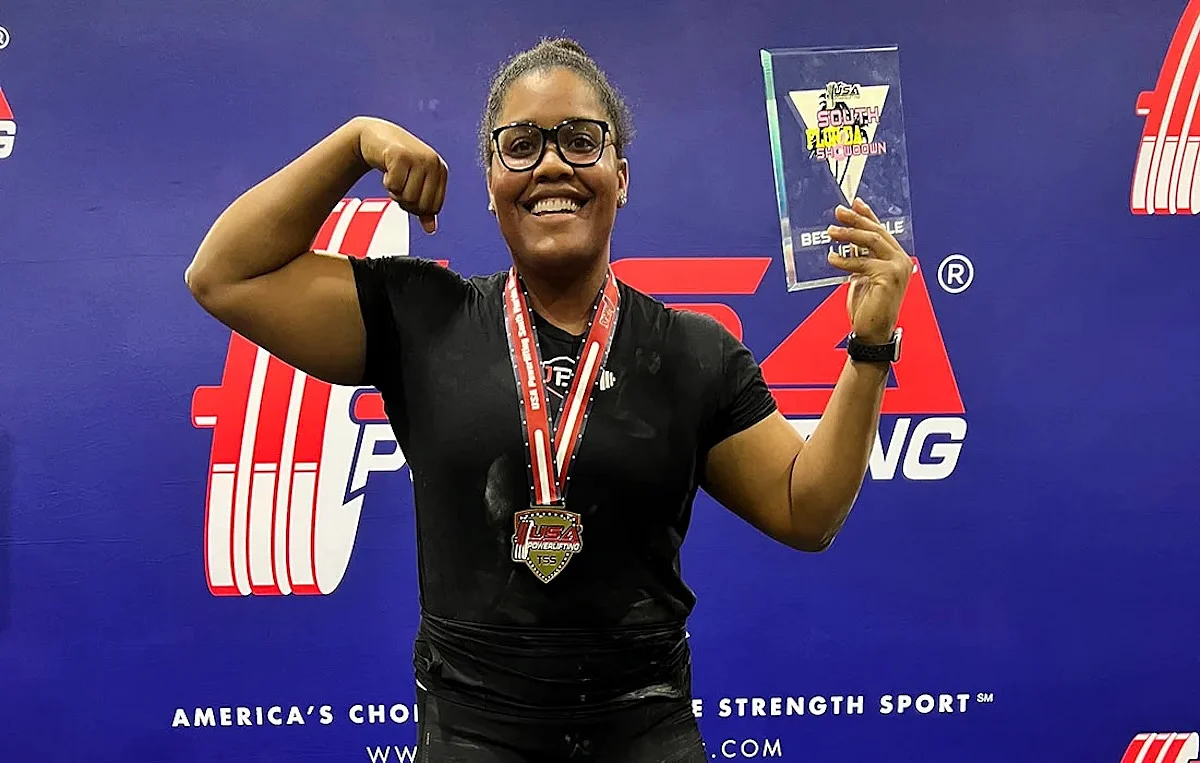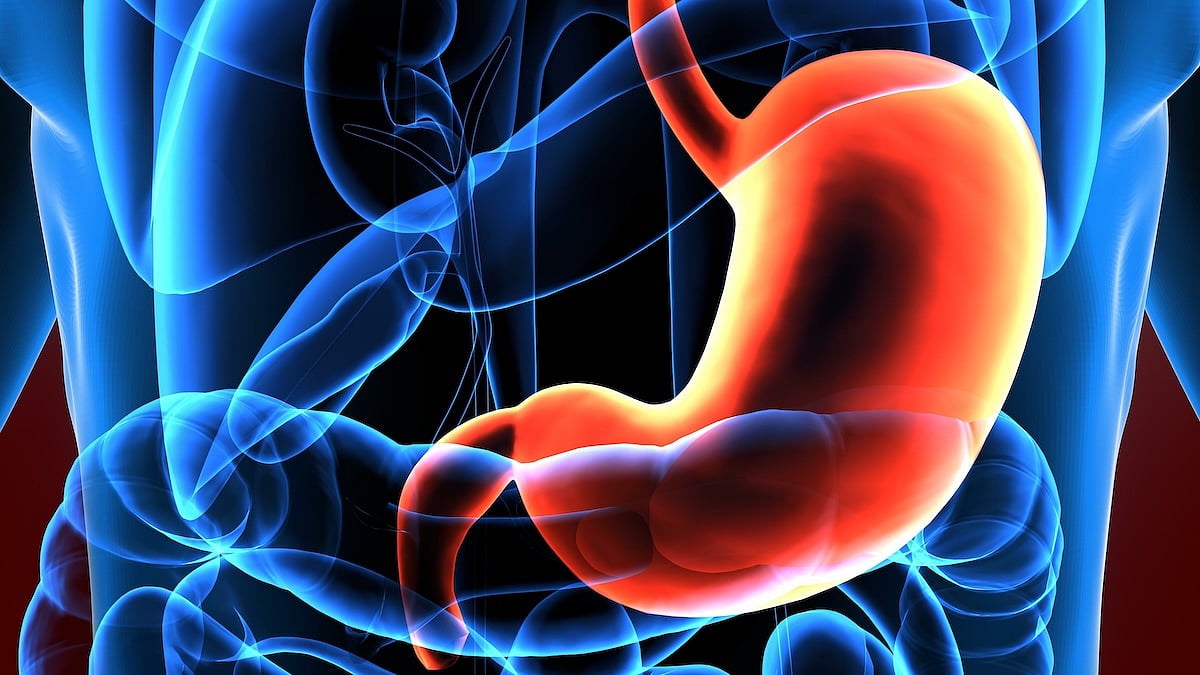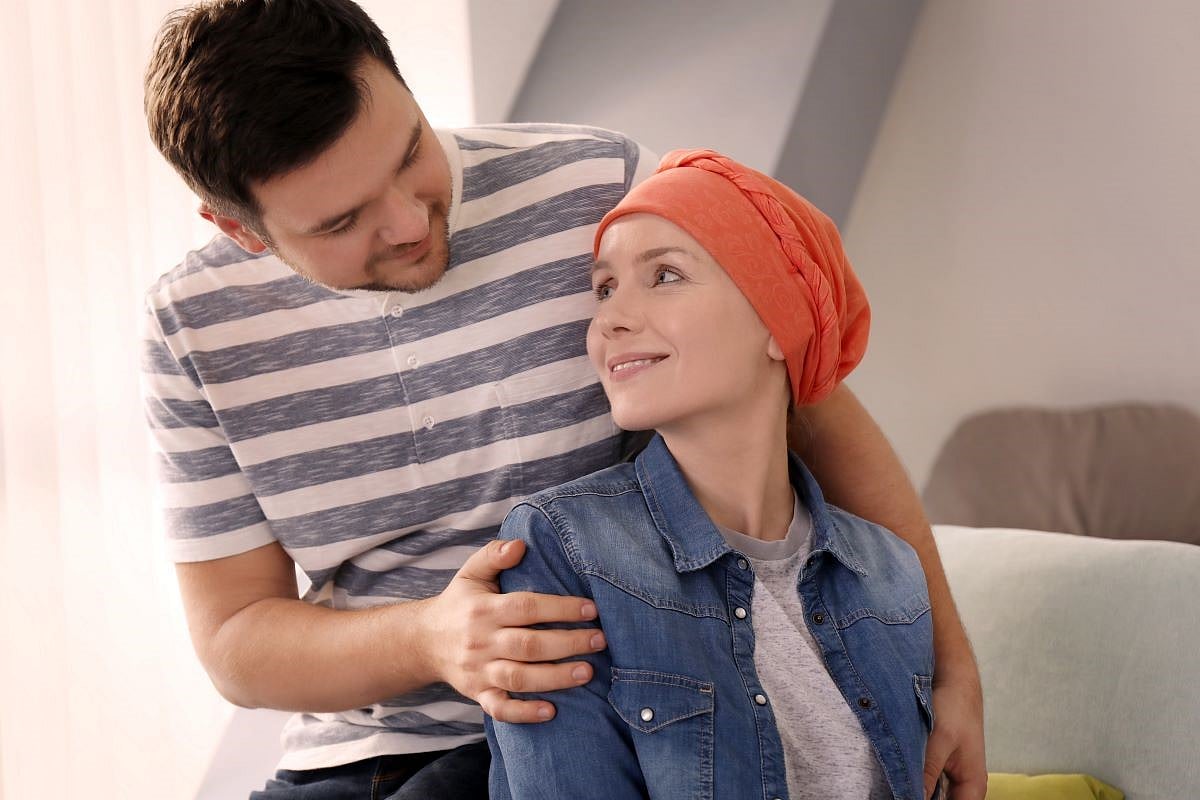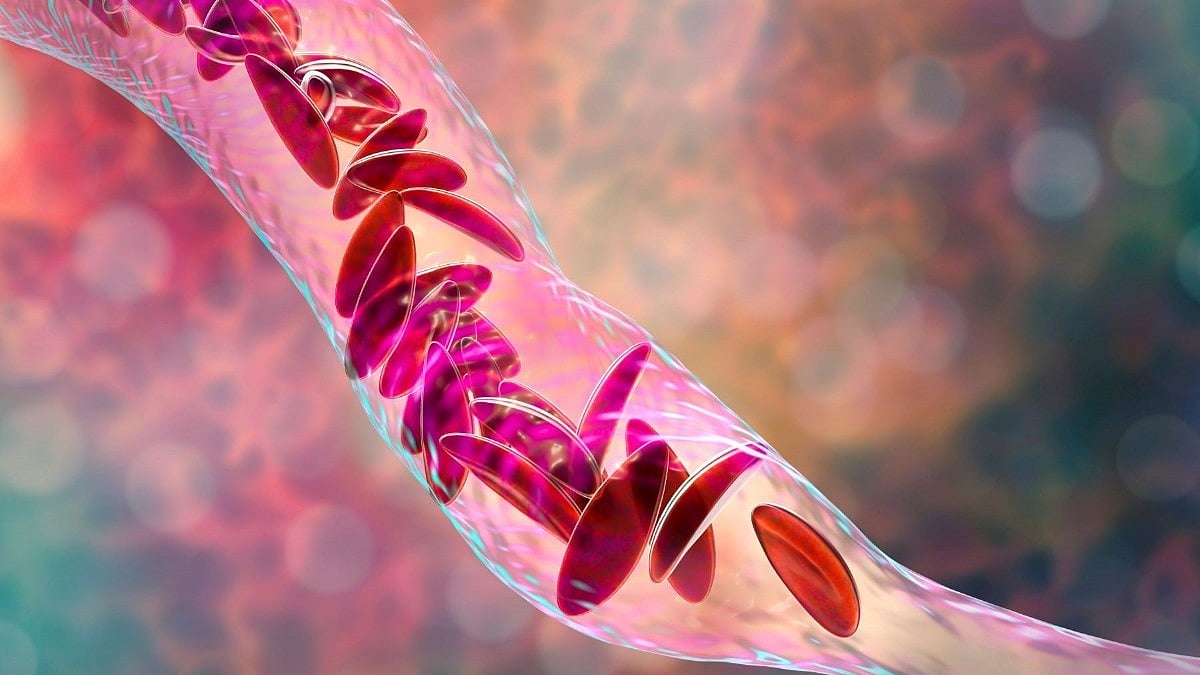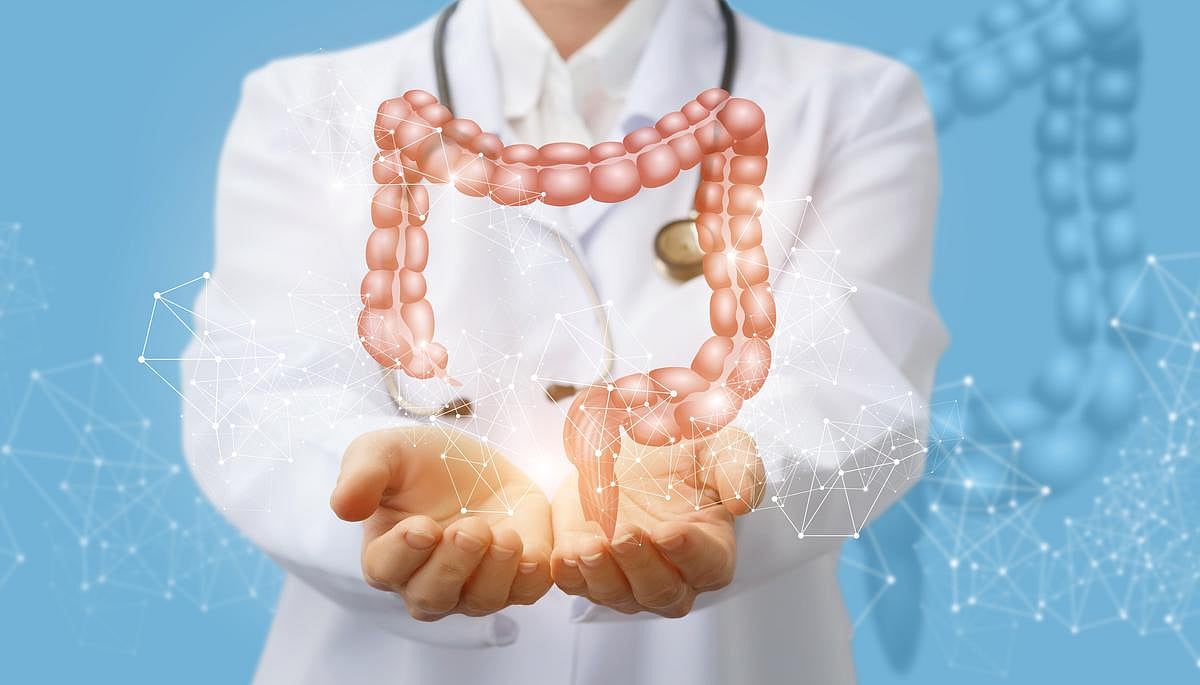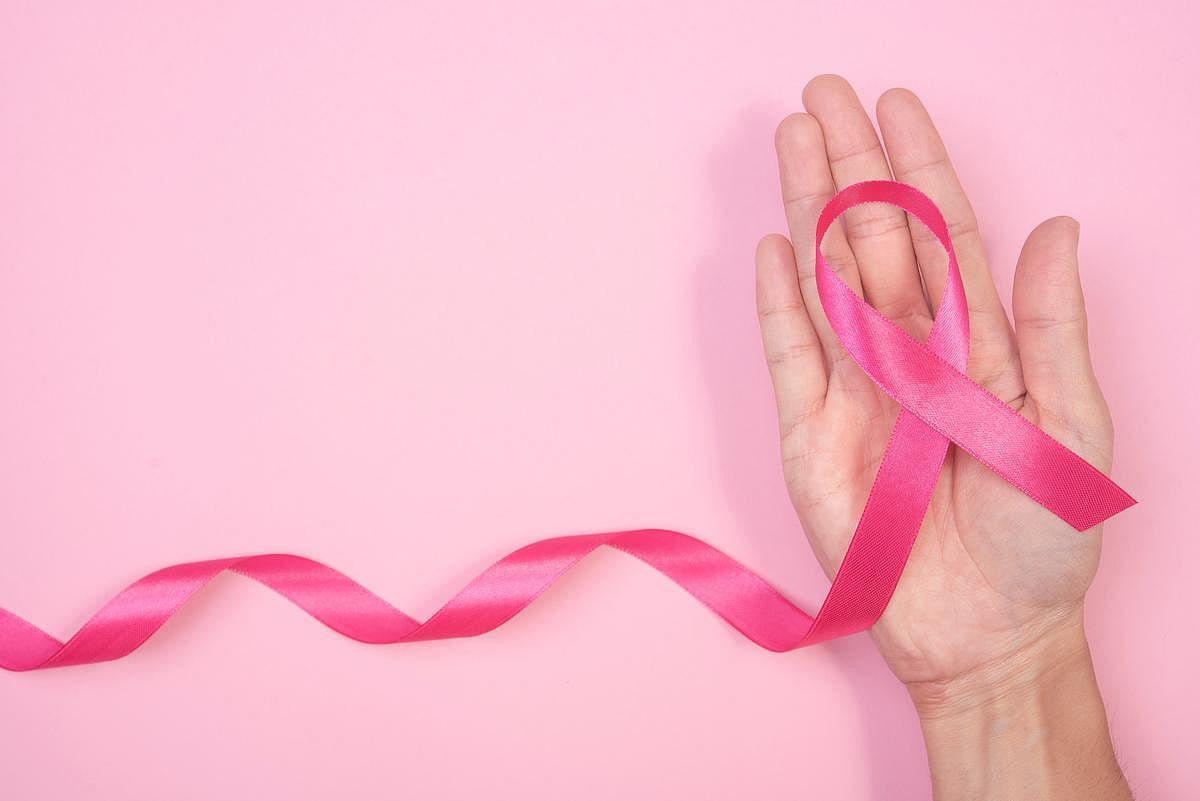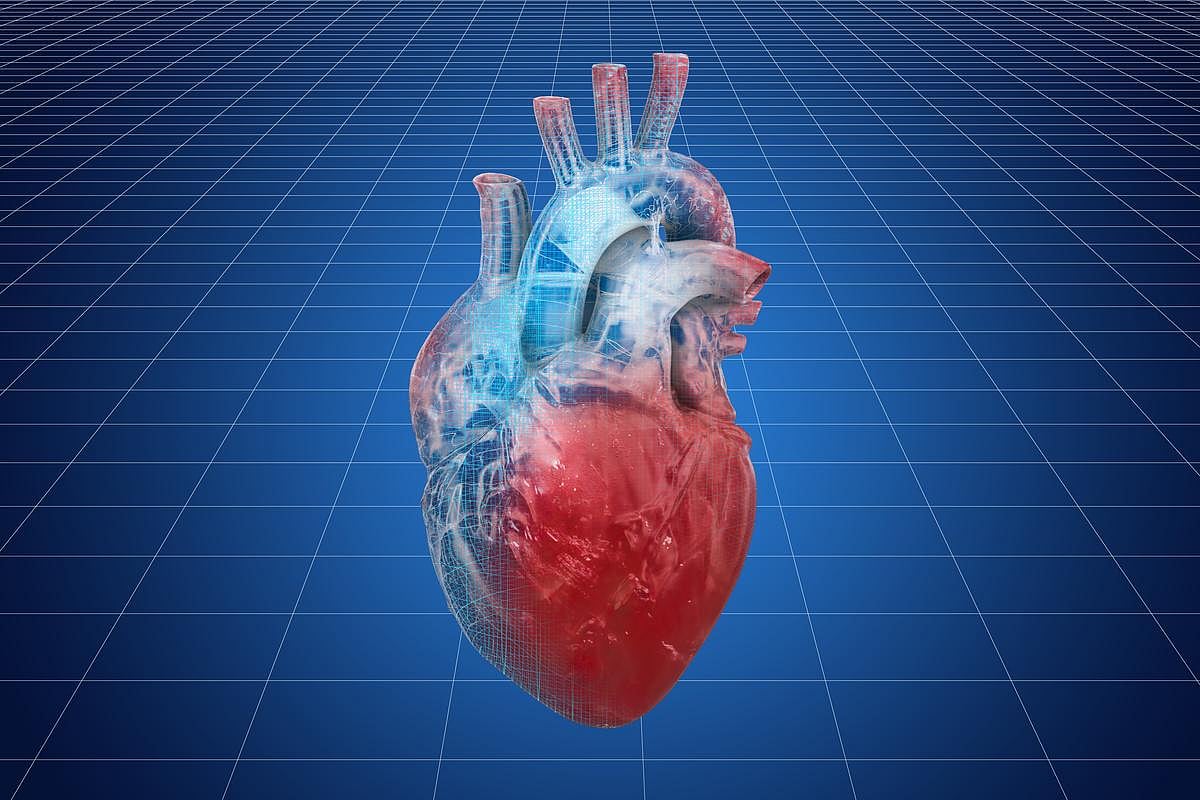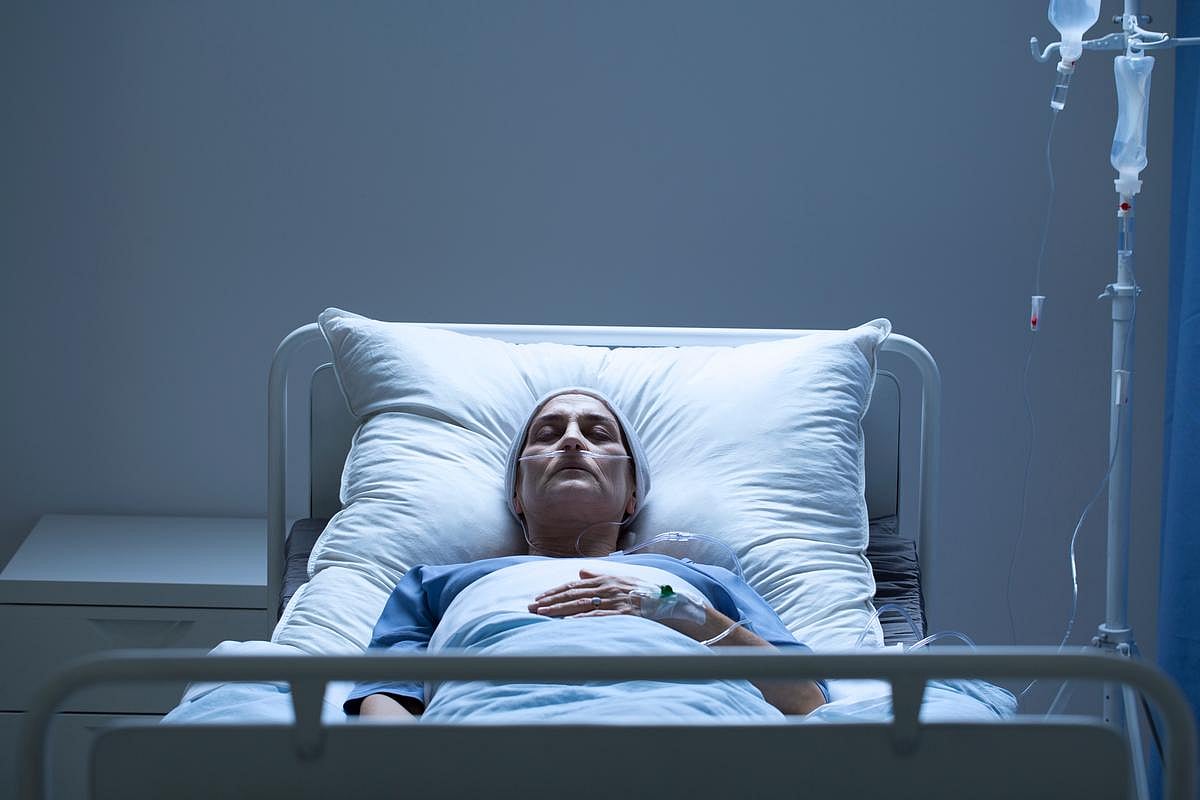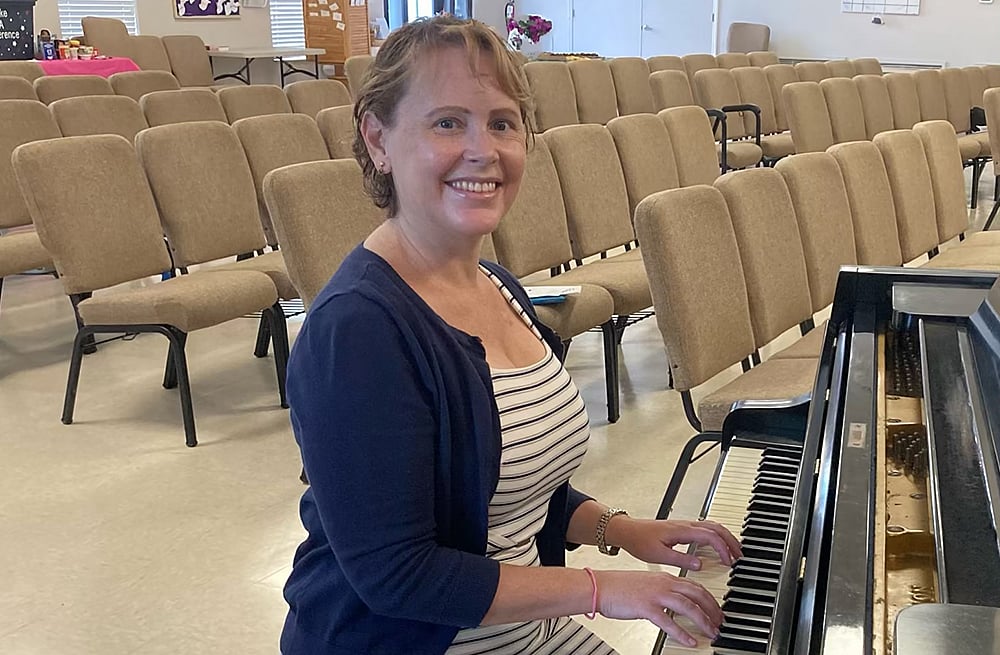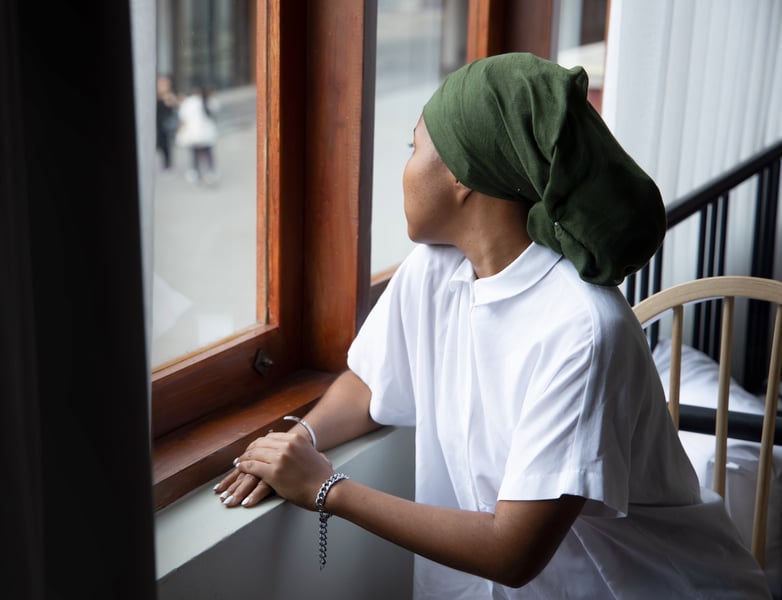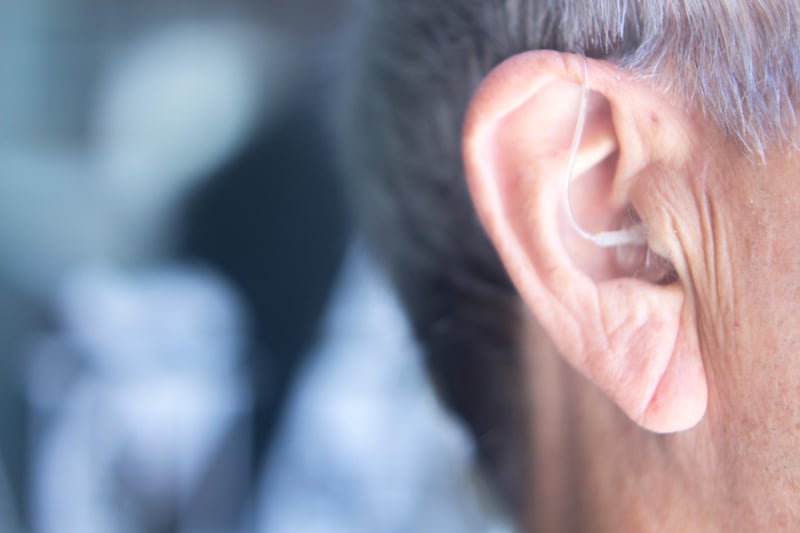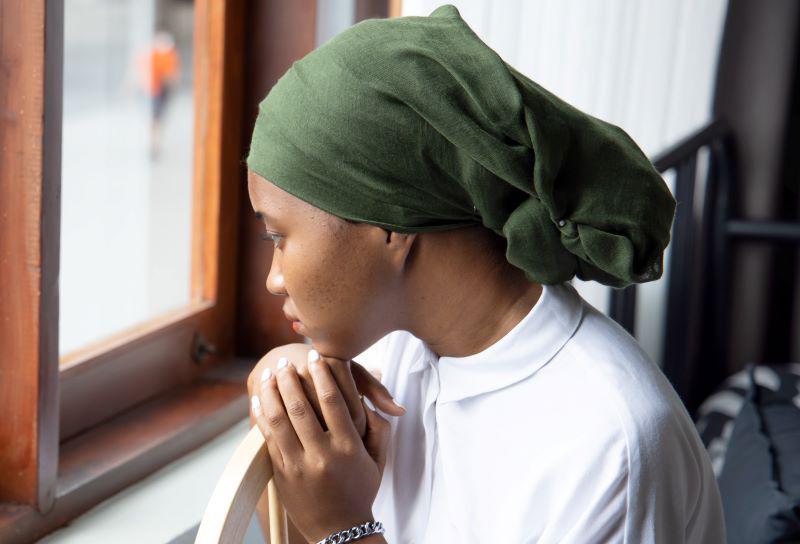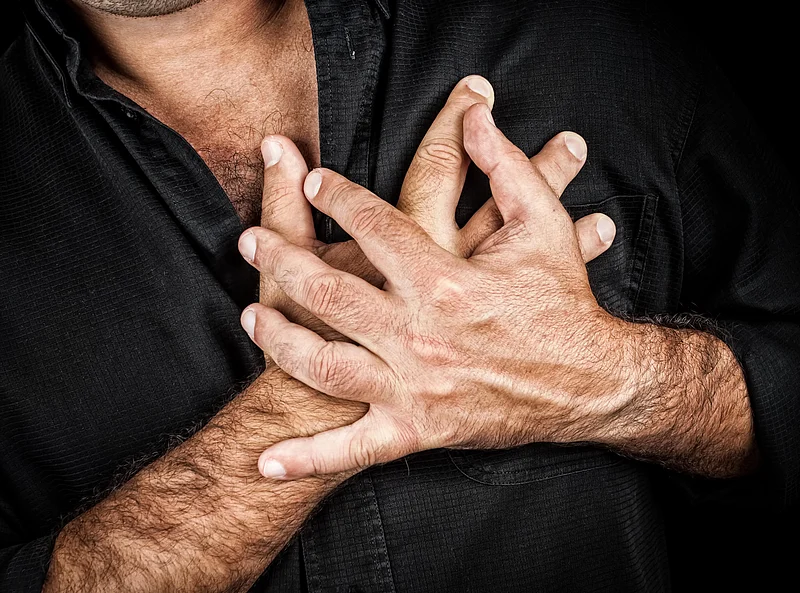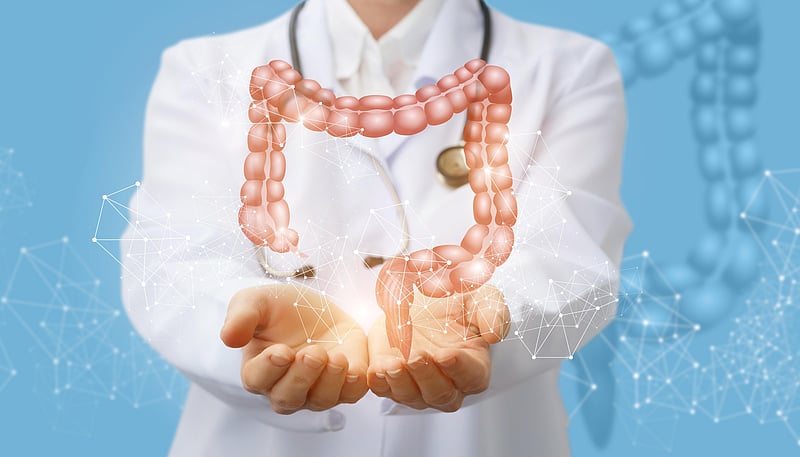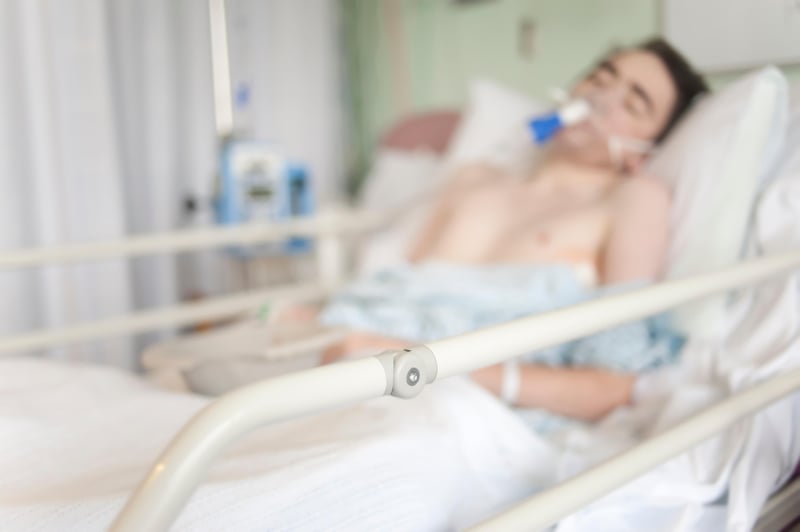Get Healthy!
Results for search "Chemotherapy".
23 Sep
Chicago Teen Shares Early Symptom of Vaginal Cancer That Was Misdiagnosed as Stress
What started as a normal milestone for 14-year-old Liliana Castaneda turned into a fight for her life. Heavy bleeding was originally dismissed as stress—but it was actually a rare vaginal cancer.
11 Aug
What Causes Chemo Brain? A New Study Points to Brain Shrinkage
In a new pilot study, researchers found breast cancer patients who experienced cognitive impairment after chemotherapy had lower levels of gray matter in brain regions connected to memory and language.
12 May
Mother of Twins Receives Life-Saving Double Lung Transplant after Cancer Diagnosis
A new mother of twins from Berlin finds a miracle in Chicago after being diagnosed with advanced lung cancer. Surgeons at Northwestern Medicine save her life with a double-lung transplant.
Health News Results - 58
Chemotherapy is one of the most common weapons in the cancer-treatment arsenal, but its side effects are well known.
Hair loss. Nausea and vomiting. Mouth sores. Fatigue.
The side effects a person with cancer may have are affected by the type of cancer being treated and the chemotherapy drug being used. But a Boston-based cancer specialist told NIH News in Health that there...
- Carole Tanzer Miller HealthDay Reporter
- |
- February 15, 2026
- |
- Full Page
The most common cholesterol drug around might help protect cancer patients from “chemo brain.”
Statins appeared to protect breast and lymphoma cancer patients’ brain function for up to two years after their cancer treatment, researchers recently reported in
Women who survive an early breast cancer can breathe easy, a recent study says.
Their risk of developing a second cancer is low, about 2% to 3% greater than that of women in the general population, researchers reported in T...
- Dennis Thompson HealthDay Reporter
- |
- September 16, 2025
- |
- Full Page
Frequently, patients with advanced cancer simply want to be made as comfortable as possible as they wind down their final days.
Doctors aren’t listening to their desires, a new study indicates.
Many of these patients are receiving treatment focused on extending their lives rather than...
- Dennis Thompson HealthDay Reporter
- |
- August 26, 2025
- |
- Full Page
A new implant eliminated bladder cancer in more than 4 out of 5 high-risk cases, new clinical trial results show.
The miniature pretzel-shaped device, dubbed TAR-200, slowly releases the chemotherapy drug gemcitabine into the bladder, resea...
- Dennis Thompson HealthDay Reporter
- |
- August 18, 2025
- |
- Full Page
Needless fear of hair loss and brittle, discolored nails caused by cancer treatment might lead many patients to avoid or delay life-saving treatment, a new pilot study says.
Many people misunderstand how common these side effects are during cancer treatment, according to findings published in the...
- HealthDay Reporter
- Dennis Thompson
- |
- August 6, 2025
- |
- Full Page
LaShae Rolle, 27, is a competitive powerlifter capable of squatting 441 pounds, benching 292 pounds and deadlifting 497 pounds.
Last year, breast cancer tried to derail Rolle's dreams of going up against the best of the best.
<...- HealthDay Reporter
- Dennis Thompson
- |
- July 25, 2025
- |
- Full Page
Immunotherapy combined with chemo can give people a fighting chance against stomach and esophageal cancers, a new clinical trial says.
People treated with durvalumab and chemotherapy were much more likely ...
- HealthDay Reporter
- Dennis Thompson
- |
- June 6, 2025
- |
- Full Page
A cancer patient’s bond with their partner can be a key factor in helping them ward off chemotherapy-related “brain fog,” a new study says
Patients in a satisfying intimate relationship were more likely to resist chemo brain, the cognitive impairment that can occur duri...
- HealthDay Reporter
- Dennis Thompson
- |
- May 2, 2025
- |
- Full Page
Four specific genes serve as a telltale clue to how potentially deadly stomach cancers will develop and progress, a new study says.
Testing for these genetic mutations could enable doctors to offer targeted treatments and spare some patients from going through aggressive measures like surg...
- HealthDay Reporter
- Dennis Thompson
- |
- April 25, 2025
- |
- Full Page
An oral chemotherapy drug can safely and effectively manage sickle cell disease in children, a new study says.
Children taking hydroxyurea had fewer ER visits and spent fewer days in the hospital compared to kids not taking the drug, researchers reported April 17 in the journal
Surgery might not be needed to treat as many as 60% of early-stage breast cancers, a new study says.
Breast cancers that have been completely wiped out by chemotherapy and radiation treatment are not likely to come back, according to a small-scale clinical ...
- HealthDay Reporter
- Dennis Thompson
- |
- March 31, 2025
- |
- Full Page
Colon cancer is a particularly deadly form of the disease, the second most common cause of cancer deaths in the U.S.
But patients diagnosed with colon cancer also need to be concerned about their heart health, especially if they’re younger adults, a new study says.
C...
- HealthDay Reporter
- Dennis Thompson
- |
- March 26, 2025
- |
- Full Page
Breast cancer survivors treated with chemotherapy tend to suffer a longer-lasting decline in their physical health, compared to women who receive hormone therapy or other cancer treatments.
Chemotherapy patients reported a physical decline that extended more than two years after their di...
- HealthDay Reporter
- Dennis Thompson
- |
- March 4, 2025
- |
- Full Page
Four in every 10 cancer patients treated with chemotherapy develop severe peripheral nerve pain, a new evidence review suggests.
These patients might experience loss of balance and coordination, weakness or sensations of numbness, tingling, “pins and needles,” or burning, researchers ...
- HealthDay Reporter
- Dennis Thompson
- |
- January 29, 2025
- |
- Full Page
When supplies of certain generic, platinum-based cancer chemotherapies dwindled in 2023, oncologists feared it might lead to under-treatment and many more cancer deaths.
Fortunately, that did not turn out to be the case, a new study published recently in the Journal of the National Cancer...
- HealthDay Reporter
- Ernie Mundell
- |
- December 24, 2024
- |
- Full Page
Researchers think they’ve figured out why cancer treatments that harness a person’s immune system to fight a tumor can cause heart damage in rare instances.
Further, what they’ve learned sheds light on how this potentially deadly side effect might be prevented.
Specific ty...
- HealthDay Reporter
- Dennis Thompson
- |
- November 8, 2024
- |
- Full Page
In some good news for women battling locally advanced cervical cancer, new research shows that adding six weeks of chemotherapy to standard treatment cuts the risk of death by 40 percent.
“This is the biggest improvement in outcome in this disease in over 20 years,” lead investigator Dr. M...
- HealthDay Reporter
- Robin Foster
- |
- October 17, 2024
- |
- Full Page
In a small, preliminary study, piano lessons provided to cancer patients undergoing chemotherapy appeared to help them maintain brain health.
"There were a lot of outside stressors contributing to my mood, but piano practice and going to lessons were always something good and positive that I would look forward to, no matter what else was happening,” said Robin Hesselink, an enrolle...
- HealthDay Reporter
- Ernie Mundell
- |
- October 8, 2024
- |
- Full Page
Pancreatic cancer is particularly aggressive and difficult to treat, partly because it's often resistant to chemotherapy.
Researchers now think they know why chemo struggles to work against pancreatic cancer"and how to reverse that resistance.
It turns out that the physical stiffness of the...
- HealthDay Reporter
- Dennis Thompson
- |
- July 8, 2024
- |
- Full Page
Simple exercises performed during rounds of chemotherapy can help people avoid nerve damage normally associated with the cancer-killing drugs, a new study suggests.
About twice as many cancer patients on chemo wound up with long-lasting nerve damage if they didn...
- HealthDay Reporter
- Dennis Thompson
- |
- July 2, 2024
- |
- Full Page
MONDAY, July 1, 2024 (HealthDay news) -- A 14-year study of testicular cancer survivors suggests that a chemotherapy drug could greatly raise patients' long-term odds for hearing loss.
The drug in question, cisplatin, has been a mainstay of cancer chemotherapy for decades. It's often used to fight a range of cancers, including includ...
- HealthDay Reporter
- Ernie Mundell
- |
- July 1, 2024
- |
- Full Page
If you're one of the millions of Americans walking around with a new knee or hip, your odds for an infection in that joint rise if you ever have to undergo cancer chemotherapy, researchers report.
"Given the number of people of receiving total joint replacements each year, as well as the cost both physically, emotionally and financially for those who develop an infection and may need subs...
- HealthDay Reporter
- Ernie Mundell
- |
- May 27, 2024
- |
- Full Page
Mick worked in a factory boiler room in the 1970s, where he was exposed to asbestos.
He didn't think much of it until 2018, when he began to feel ill and dropped more than 40 pounds.
The diagnosis: malignant mesothelioma, a rare but rapidly fatal cancer linked to asbestos.
"It was a bit of a shock: I was given four months to live,"Mick recalled in a Queen Mary University of Lo...
- HealthDay Reporter
- Dennis Thompson
- |
- February 15, 2024
- |
- Full Page
U.S. cancer centers continue to have shortages of commonly used chemotherapy drugs, a new survey shows, though the medications are not as scarce as they were last June.
The National Comprehensive Cancer Network (NCCN), a nonprofit alliance of leading cancer centers,
Patients being treated for ovarian cancer often experience peripheral neuropathy, a side effect from their chemotherapy that can cause both pain and numbness for months, or even years.
Now, a new study suggests that six months of aerobic exercise may ease this unpleasant side effect.
"The results from this trial hold the potential to transform supportive care for ovarian cancer surv...
- HealthDay Reporter
- Cara Murez
- |
- August 9, 2023
- |
- Full Page
A preclinical study offers a potential new therapy for treatment-resistant prostate cancer, offering new hope for men with the disease.
The study used the chemotherapy drug cisplatin, administered orally, to disrupt the metabolism of prostate cancer cells and bring the medication directly into treatment-resistant cells.
University of Miami researchers validated their targets in huma...
- HealthDay Reporter
- Cara Murez
- |
- July 13, 2023
- |
- Full Page
Radiation therapy might not be necessary in treating some forms of rectal cancer and lymphoma, sparing patients from the toxic treatment, a pair of new clinical trials shows.
One trial found that rectal cancer patients whose tumors shrink in response to chemotherapy can safely skip the radiation therapy that's normally provided prior to surgery, researchers reported at the American Societ...
- HealthDay Reporter
- Dennis Thompson
- |
- June 6, 2023
- |
- Full Page
Brain cancers are notoriously difficult to treat because most chemotherapy drugs can't breach the blood-brain barrier, a microscopic layer of cells that protect the brain from toxins.
But researchers now say they can temporarily open that barrier and get more chemo to brain tumors, using an experimental ultrasound device.
The technology led to a four- to sixfold increase in chemo dr...
- HealthDay Reporter
- Dennis Thompson
- |
- May 3, 2023
- |
- Full Page
Sometimes cancer, and the treatments meant to eradicate it, can damage the heart and blood vessels. Now, a new analysis finds that damage may be much more likely if the patient is Black.
Black patients had 71% higher odds of developing what is known as cardiotoxicity following chemotherapy when compared to white patients. They also had increased odds of being diagnosed with congest...
- HealthDay Reporter
- Cara Murez
- |
- April 14, 2023
- |
- Full Page
Researchers have found a way to safely deliver a steady supply of chemotherapy directly to brain tumors -- in what they hope will be an important advance for patients with currently incurable cancers.
The treatment involves an implantable pump system that supplies a steady drip of chemo straight to the brain tumor. Researchers have tested it in five patients who had recurrent glioblastoma...
- HealthDay Reporter
- Amy Norton
- |
- November 22, 2022
- |
- Full Page
When you are getting chemotherapy, exercise may be the last thing on your mind. Now, new research suggests it should be the first.
Exercising during chemotherapy is safe, improves long-term cardiac and respiratory function and may help ease some of the ravages of tr...
- HealthDay Reporter
- Steven Reinberg
- |
- October 18, 2022
- |
- Full Page
People who've had chemotherapy to treat a range of common cancers should also have a hearing test.
In a new study of 273 cancer survivors, researchers found more than half experienced significant hearing loss even if they didn't realize it.
"While hearing loss associated with the adminis...
- HealthDay Reporter
- Cara Murez
- |
- August 4, 2022
- |
- Full Page
Adding the drug Keytruda to standard chemotherapy can extend the lives of some women with an aggressive form of breast cancer, a new study finds.
The study involved women with advanced triple-negative breast cancer, a hard-to-treat form of the disease. Keytruda (pembrolizumab) is already approved in the Un...
- HealthDay Reporter
- Amy Norton
- |
- July 21, 2022
- |
- Full Page
The U.S. Supreme Court's decision to overturn Roe v. Wade will limit cancer treatment options for pregnant women and put lives needlessly at risk, America's leading cancer societies warn.
About one in every 1,000 women who are pregnant will wind up being diagnosed wi...
- HealthDay Reporter
- Dennis Thompson
- |
- July 12, 2022
- |
- Full Page
If you survive cancer, you're more apt to have heart trouble later on, a new study shows.
Researchers found that compared to others, cancer survivors had a 42% greater risk of heart disease, most likely due to
Adult survivors of childhood cancer have a higher risk of heart problems than other adults, but are much less likely to be treated for heart disease risk factors such as high blood pressure, diabetes and high cholesterol, new research shows.
The findings highlight the need for greater awareness among both doctors and patients of the increased risk of heart disease among the estimated 500,...
- HealthDay Reporter
- Robert Preidt
- |
- June 8, 2022
- |
- Full Page
A blood test could save some colon cancer patients from getting unnecessary chemotherapy following surgery, while making sure that those who would benefit from the treatment get it, researchers report.
The circulating tumor DNA (ctDNA) test looks for minute amounts of genetic material that are released by...
- HealthDay Reporter
- Dennis Thompson
- |
- June 7, 2022
- |
- Full Page
Patients with advanced cancer often suffer crippling fatigue, but there has been little in the way of relief for them as they battle their disease.
Now, a new investigation may have landed on a surprising solution -- a dummy pill that contains no medication of any kind.
- HealthDay Reporter
- Alan Mozes
- |
- June 6, 2022
- |
- Full Page
The United States spends far more on cancer care than other wealthy nations, but it's not seeing a return on that investment in terms of lives saved, a new study shows.
Compared with the average high-income country, researchers found the U.S. spends twice as much on cancer care -- more tha...
- HealthDay Reporter
- Amy Norton
- |
- June 2, 2022
- |
- Full Page
Gender differences extend to cancer treatments, with women having a higher risk of severe side effects from certain treatments than men, a new study finds.
Previous research concluded women tend to have more side effects from chemotherapy, and this new paper shows the same is true for
Alan Holman didn't stop exercising when told he had cancer, and he's glad of it, now that U.K. researchers say moderate exercise may improve chemotherapy outcomes in esophageal cancer patients.
Holman, 70, was diagnosed with esophageal cancer in December 2016, shortly after retiring from his job as a facilities manager at a shopping mall in Britain. Like many patients, he underwent
- HealthDay Reporter
- Robert Preidt
- |
- February 3, 2022
- |
- Full Page
An experimental drug, added to chemotherapy, may benefit women with an aggressive form of breast cancer, suggests an early study offering much-needed good news.
The study involved women with "triple-negative" breast cancer, which accounts for about 15% to 20% of breast cancers among U.S. women. It is so called because the cancers lack receptors for the hormones estrogen and progesterone, ...
- HealthDay Reporter
- |
- December 15, 2021
- |
- Full Page
For certain leukemia patients, some welcome findings: New research confirms long remissions after treatment with the drug ibrutinib and chemotherapy.
The study involved 85 patients with chronic lymphocytic leukemia (CLL). All were 65 or younger, and 46 had more aggressive, unmutated IGHV subtype of the d...
- HealthDay Reporter
- Robert Preidt
- |
- December 14, 2021
- |
- Full Page
Children with the rare cancer neuroblastoma often succumb to the disease despite aggressive treatment. But researchers have found that adding an experimental antibody to that treatment, right off the bat, may improve their outlook.
Of 64 children treated with the antibody in a clinical trial, 74% were still alive and free of a recurrence three years later. That compares with historical ra...
- HealthDay Reporter
- Amy Norton
- |
- December 10, 2021
- |
- Full Page
A condition called lymphedema is a well-known side effect of breast cancer treatment that can lead to swelling in the arms and legs.
New research suggests that Black women experience are at more than three times the risk of this painful issue compared to white women.
"Lymphedema worsens quality of life for breast cancer patients," said the study's lead author, Dr. Andrea Barrio. S...
- HealthDay Reporter
- Cara Murez
- |
- December 7, 2021
- |
- Full Page
New treatment options are giving hope to patients with stomach cancer.
Also known as gastric cancer, the disease is the world's sixth most common cancer with 1.09 million new cases in 2020, according to the World Health Organization.
It's an abnormal growth of cells that can affect any part of the stomach, but typically forms in the main part.
"I tell patients who have been re...
- HealthDay Reporter
- |
- November 25, 2021
- |
- Full Page
Women with breast cancer are known to have heart problems related to treatment, and now a new study shows their odds of developing an abnormal heart rhythm known as atrial fibrillation (a-fib) may increase in the wake of a breast cancer diagnosis.
Women who develop a-fib within a month of a breast cancer diagnosis are more likely to die from heart- or blood vessel-related problems within ...
- HealthDay Reporter
- Denise Mann
- |
- November 16, 2021
- |
- Full Page
COVID-19 vaccines are safe and effective for most cancer patients, a new study confirms.
Cancer patients have an increased risk of severe illness and death from COVID because their immune systems have been weakened by their disease or treatments.
"We pursued this study because there were limited data on the safety of SARS-CoV-2 vaccines in people with active cancer; no published pro...
- HealthDay Reporter
- Robert Preidt
- |
- November 12, 2021
- |
- Full Page
Since 1971, when the U.S. government made defeating cancer a goal and put major funding behind it, death rates for many cancers have plummeted, but some are increasing, according to a new American Cancer Society report.
Death rates for all cancers combined have declined since passage of the National Cancer Act of 1971, according to the report. For example, in 2019, deaths from lung c...
- HealthDay Reporter
- Steven Reinberg
- |
- November 11, 2021
- |
- Full Page
